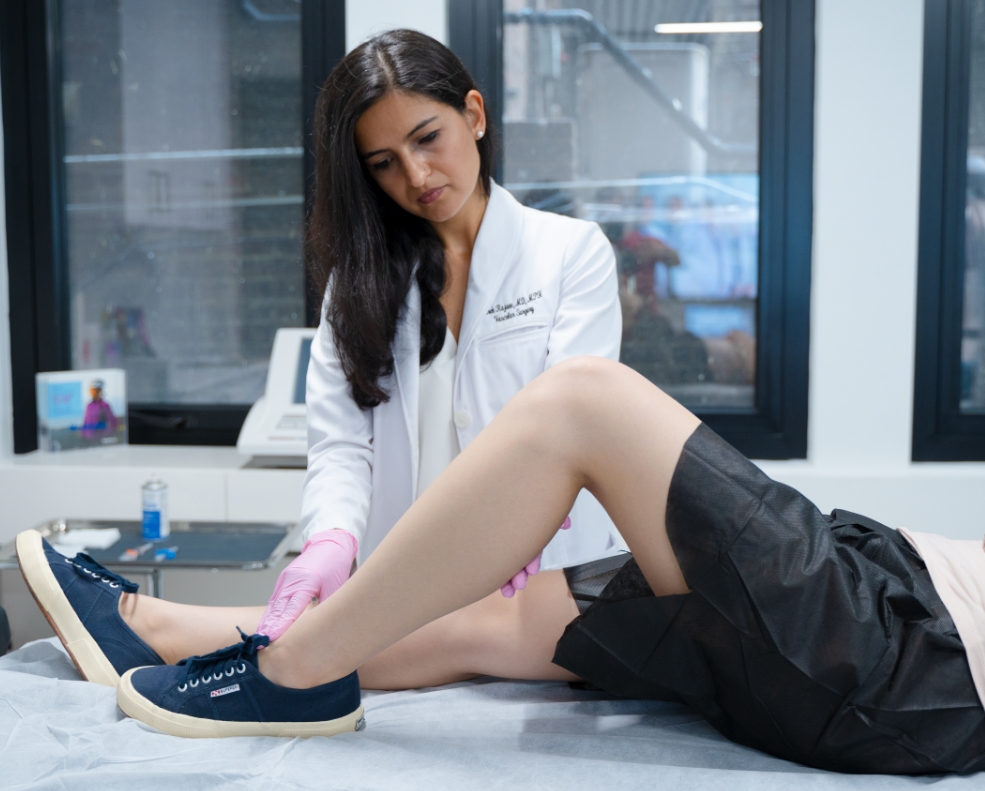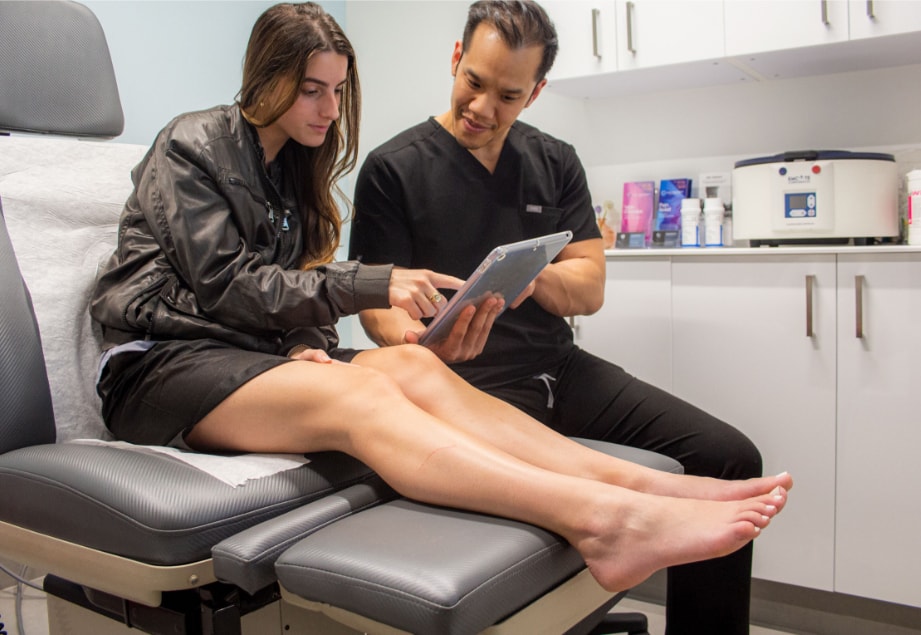Are Varicose Veins Treated By A Dermatologist Or A Vascular Surgeon?
Looking for the best treatment for the veins?
If yes, then it is necessary that you be aware of which type of doctor is looking for varicose veins. Upon noticing noticeable and frequently unpleasant veins on your legs, your dermatologist may be the first person to come to mind. Dermatologists are skilled in treating skin issues, but phlebologists or vein specialists are the ideal people to handle issues pertaining to veins. This article will state, “What is a Vein Doctor Called?” To know more about the same, continue reading.
What type of doctor treats varicose veins?
Large masses of blood vessels that have grown twisted and curled, like rope, and protruded from the skin’s surface are known as varicose veins. They are actually damaged blood vessels that are packed with abnormally high blood volumes. The extra blood volume causes them to enlarge and protrude outward. Treatment should be administered by phlebologists, vein specialists, or vascular surgeons since these are vascular issues.
What kind of physician handles varicose veins?
Dilated blood vessels with extra blood are called varicose veins. Blood buildup in the veins of the legs results in vascular dilatation and enlarging leg veins that resemble twisted, knotted, and tangled ropes. Varicose veins require the care of physiologists or vascular experts because they are vascular issues.

Physicians who specialize in veins and vascular issues come from all areas of medicine, including primary care, cardiology, dermatology, and anesthesia. As long as a doctor has received extra training in the identification and management of vascular disorders such as leg ulcers, varicose veins, spider veins, and chronic venous insufficiency, they can be considered phlebologists.
Can varicose veins be removed by a dermatologist?
The area of medicine known as dermatology focuses on the identification and management of skin conditions. As a result, dermatologists are qualified to identify and manage visible veins that affect the skin’s surface, such as spider and superficial varicose veins. Spider veins and varicose veins that are visible are shrunk by laser treatment and finally disappear from the skin’s surface.
Varicose veins and spider veins, however, are usually the result of an underlying chronic venous insufficiency, which cannot be treated by laser therapy. While you will find some improvements immediately after the laser therapy, recurrence is highly possible, and new spider veins and varicose veins will form because the underlying vein disease will keep on spreading.

Modifications in lifestyle
The initial line of treatment for varicose veins frequently involves a change in lifestyle. These modifications can lessen discomfort, stop the progression of varicose veins, and postpone the formation of new varicose veins. Changes in lifestyle can include the following
Steer clear of prolonged standing or sitting without taking a break. Refrain from crossing your legs while sitting. When you’re sleeping, resting, or sitting, lift your legs. Lift your legs above your heart as high as you can.
Engage in physical activity to increase muscle tone and get your legs moving. This facilitates blood flow via your veins.
Reduce your weight if you are fat or overweight. This will lessen vein pressure and enhance blood flow.
Steer clear of wearing clothing that is too tight, especially around your waist and groin (upper thighs) or legs.
In conclusion
This article has stated how you can get the varicose vein treatment done. Now that you are clear about “What Type of Doctor Treats Varicose Veins,” this article has stated how you can get the checkup done right with an expert doctor.
Comments
Post a Comment